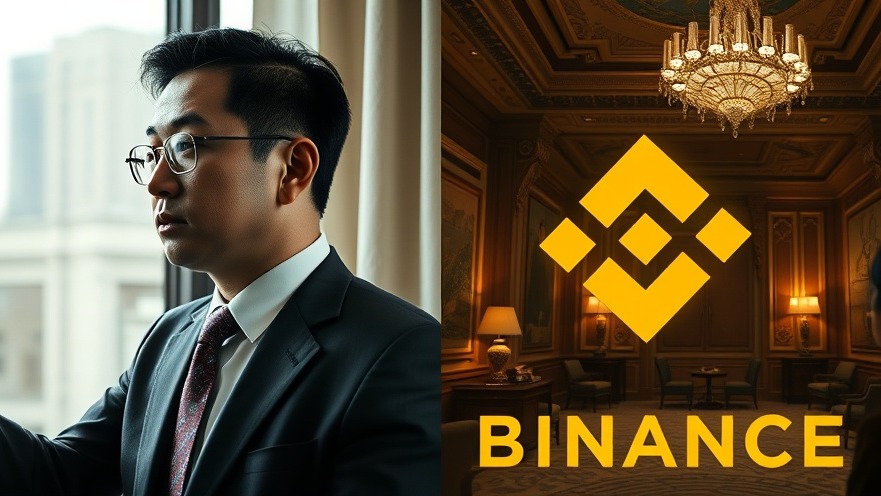
Understanding the Possible Pardon for Changpeng Zhao
The White House is currently deliberating on a pardon for Changpeng Zhao, the former CEO of Binance and a prominent figure in the cryptocurrency industry. With discussions intensifying, potential implications of such a pardon are stirring fierce debate within the political landscape. Zhao, who recently completed a four-month prison sentence after pleading guilty to charges tied to anti-money laundering regulations, has actively lobbied for a pardon from former President Trump, highlighting aspects of his case that many believe warrant reconsideration.
Context of Zhao's Conviction
Zhao’s legal troubles began in the aftermath of a broader crackdown on the cryptocurrency sector initiated by the Biden administration in 2023, perceived by some as excessive. While Zhao faced a single felony charge and consequently spent a few months behind bars, critics argue that the severity of his punishment was disproportionate, especially compared to other figures in the industry like Sam Bankman-Fried, founder of FTX, whose actions led to more severe consequences and a much harsher public backlash.
The Political Landscape and Implications
The discussions around Zhao's potential pardon are not merely legal considerations; they also touch upon significant political optics. Trump’s family is venturing into cryptocurrency business, creating a potential conflict of interest with a pardon for Zhao. Concerns have arisen about how such a move—if perceived as self-serving—might influence public opinion and complicate Trump's political standing, particularly as he navigates mounting challenges both domestically and internationally.
The Cryptocurrency Community's Response
The response from Zhao's peers within the cryptocurrency community has been supportive, with many expressing the view that he has been unfairly targeted. Prominent cryptocurrency executives, signaling broader industry sentiments, argue that Zhao's conviction reflects a regulatory environment struggling with its moral and practical compass post-FTX collapse. They highlight the reality that Zhao’s plea deal—though legally sound—was influenced more by the need to appease regulatory frustration than by substantive wrongdoing.
Future Predictions for Zhao and Binance
Should a pardon materialize, it could not only restore Zhao's standing within Binance—as he remains the largest shareholder—but may also signal a new regulatory atmosphere favorable to innovation in the cryptocurrency space. Observers note that a favorable outcome for Zhao could resonate well beyond his personal circumstances; it might transform how the broader industry navigates its relationship with the U.S. government amidst a rapidly evolving financial future.
The Road Ahead: What This Means for Kansas City
For locals in Kansas City and businesses interested in tech and cryptocurrency, the discussions surrounding Zhao’s pardon provide informative context for understanding the evolving regulatory landscape of the cryptocurrency sector. With the industry increasingly seen as a potential engine for local economic growth, being informed about major regulatory decisions becomes paramount. Local entrepreneurs and corporations could leverage this situation to assess how federal policy changes will impact their strategic business decisions moving forward.
In conclusion, the potential pardon for Changpeng Zhao presents a fascinating intersection of law, politics, and finance that holds considerable implications for the crypto landscape. For Kansas City residents and leaders, understanding these dynamics is vital as we move toward an uncertain economic future.
 Add Row
Add Row  Add
Add 




Write A Comment